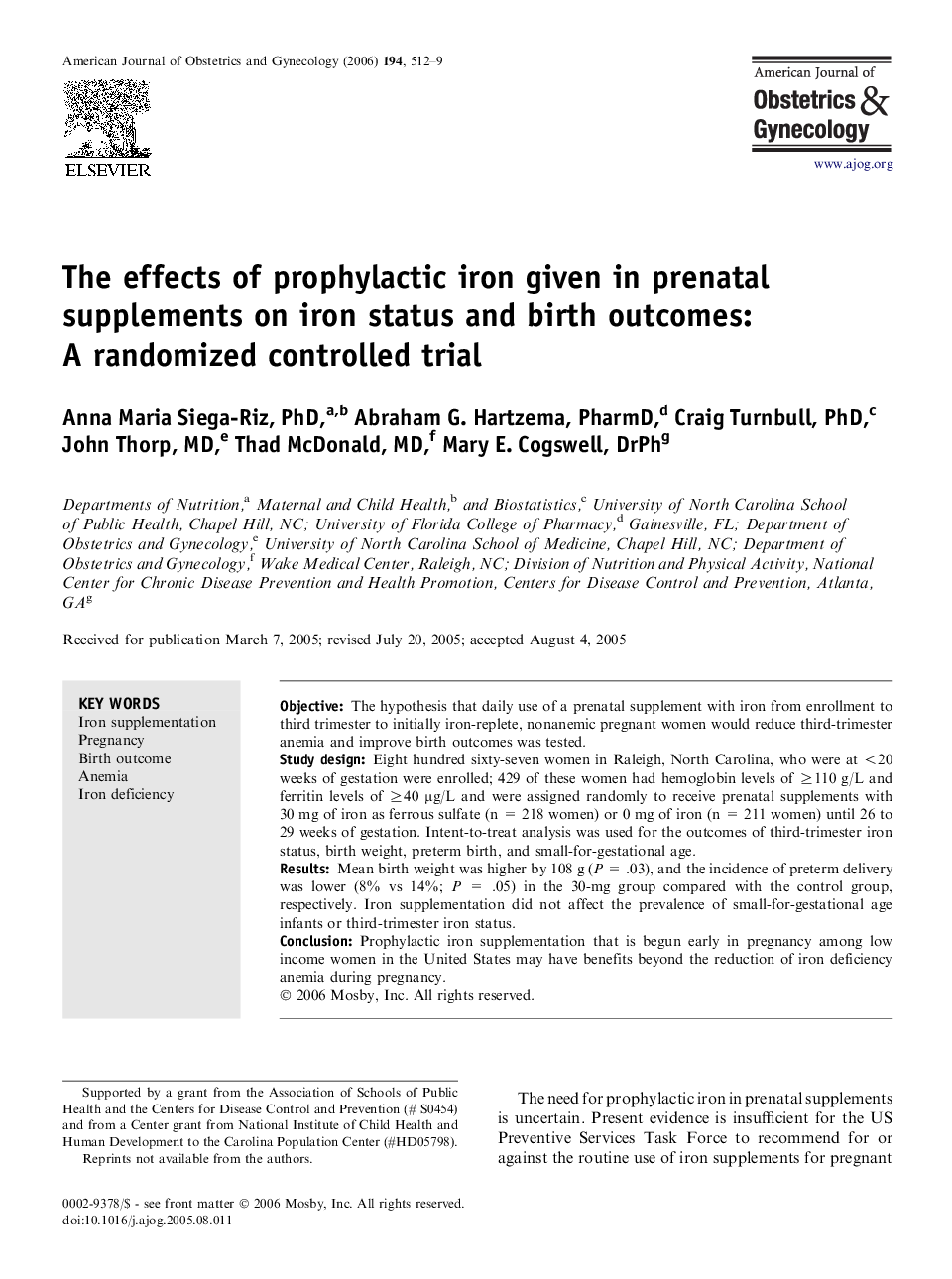| Article ID | Journal | Published Year | Pages | File Type |
|---|---|---|---|---|
| 3441477 | American Journal of Obstetrics and Gynecology | 2006 | 8 Pages |
ObjectiveThe hypothesis that daily use of a prenatal supplement with iron from enrollment to third trimester to initially iron-replete, nonanemic pregnant women would reduce third-trimester anemia and improve birth outcomes was tested.Study designEight hundred sixty-seven women in Raleigh, North Carolina, who were at <20 weeks of gestation were enrolled; 429 of these women had hemoglobin levels of ≥110 g/L and ferritin levels of ≥40 μg/L and were assigned randomly to receive prenatal supplements with 30 mg of iron as ferrous sulfate (n = 218 women) or 0 mg of iron (n = 211 women) until 26 to 29 weeks of gestation. Intent-to-treat analysis was used for the outcomes of third-trimester iron status, birth weight, preterm birth, and small-for-gestational age.ResultsMean birth weight was higher by 108 g (P = .03), and the incidence of preterm delivery was lower (8% vs 14%; P = .05) in the 30-mg group compared with the control group, respectively. Iron supplementation did not affect the prevalence of small-for-gestational age infants or third-trimester iron status.ConclusionProphylactic iron supplementation that is begun early in pregnancy among low income women in the United States may have benefits beyond the reduction of iron deficiency anemia during pregnancy.
